Ford Explorer EV vs smart #1 - Differences and prices compared
Compare performance (340 HP vs 428 HP), boot space and price (34200 £ vs 31700 £) at a glance. Find out which car is the better choice for you – Ford Explorer EV or smart #1?
Costs and Efficiency:
Looking at overall running costs, both models reveal some interesting differences in everyday economy.
smart #1 has a barely noticeable advantage in terms of price – it starts at 31700 £, while the Ford Explorer EV costs 34200 £. That’s a price difference of around 2495 £.
In terms of energy consumption, the advantage goes to the Ford Explorer EV: with 14.50 kWh per 100 km, it’s slightly more efficient than the smart #1 with 16.80 kWh. That’s a difference of about 2.30 kWh.
As for range, the Ford Explorer EV performs noticeable better – achieving up to 602 km, about 162 km more than the smart #1.
Engine and Performance:
Under the bonnet, it becomes clear which model is tuned for sportiness and which one takes the lead when you hit the accelerator.
When it comes to engine power, the smart #1 has a evident edge – offering 428 HP compared to 340 HP. That’s roughly 88 HP more horsepower.
In acceleration from 0 to 100 km/h, the smart #1 is noticeable quicker – completing the sprint in 3.90 s, while the Ford Explorer EV takes 5.30 s. That’s about 1.40 s faster.
There’s no difference in top speed – both reach 180 km/h.
There’s also a difference in torque: Ford Explorer EV pulls somewhat stronger with 679 Nm compared to 584 Nm. That’s about 95 Nm difference.
Space and Everyday Use:
Cabin size, boot volume and payload all play a role in everyday practicality. Here, comfort and flexibility make the difference.
Both vehicles offer seating for 5 people.
In curb weight, smart #1 is barely noticeable lighter – 1780 kg compared to 1908 kg. The difference is around 128 kg.
In terms of boot space, the Ford Explorer EV offers noticeable more room – 450 L compared to 323 L. That’s a difference of about 127 L.
In maximum load capacity, the Ford Explorer EV performs distinct better – up to 1422 L, which is about 436 L more than the smart #1.
When it comes to payload, Ford Explorer EV to a small extent takes the win – 585 kg compared to 470 kg. That’s a difference of about 115 kg.
Who comes out on top?
Overall, the Ford Explorer EV shows itself to be wins the duel decisively and secures the title of DriveDuel Champion.
It convinces with the more balanced overall package and proves to be the more versatile choice for everyday use.
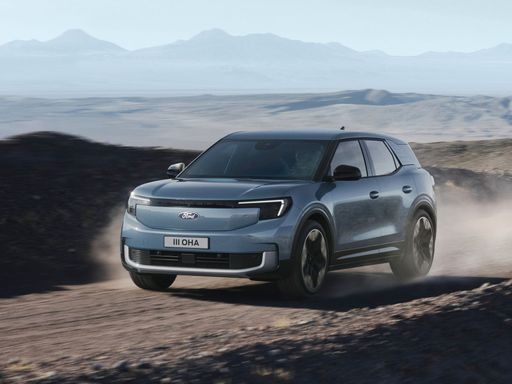
Ford Explorer EV
Costs and Consumption
View detailed analysis
Engine and Performance
View detailed analysis
Dimensions and Body
View detailed analysis
Ford Explorer EV
The Ford Explorer EV translates the familiar big‑American SUV presence into whisper‑quiet electric motoring, offering roomy seating and a tech‑forward cabin that will please families and road‑trippers alike. It drives with more composure than its boxy looks suggest, blending a comfortable ride and eager acceleration while undercutting the guilt of gas stops — a practical, modern alternative for buyers who want Explorer space with electric charm.
details
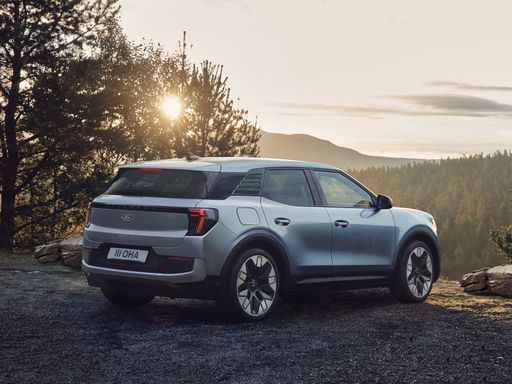
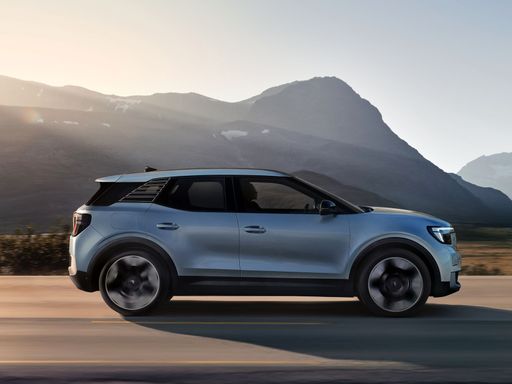
smart #1
The Smart #1 feels like a breath of fresh air in the compact EV world, pairing playful styling with usable space and a cabin that punches above its size. It skips the fuss and delivers an easygoing, city-friendly driving experience with clever features that make it a sensible, slightly cheeky choice for everyday motoring.
details
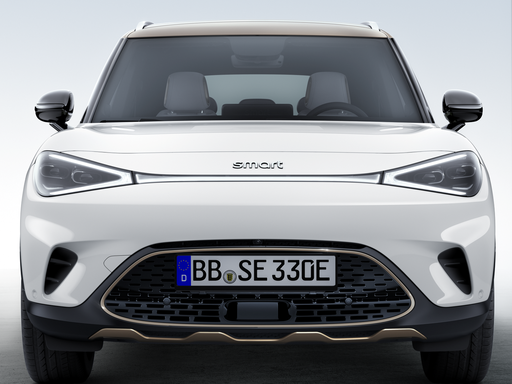
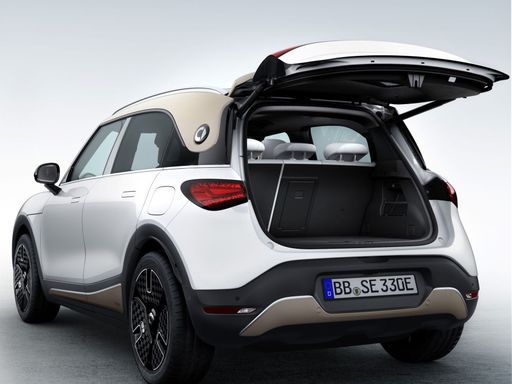
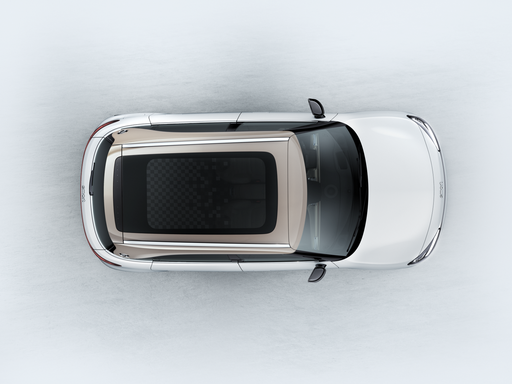

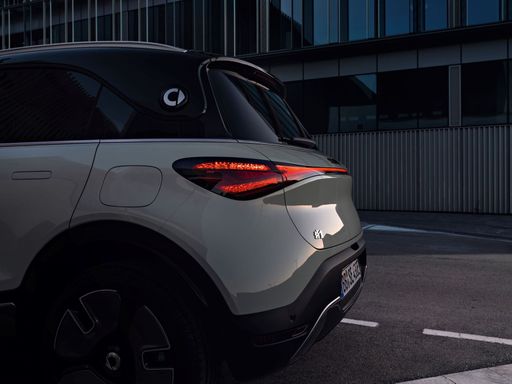
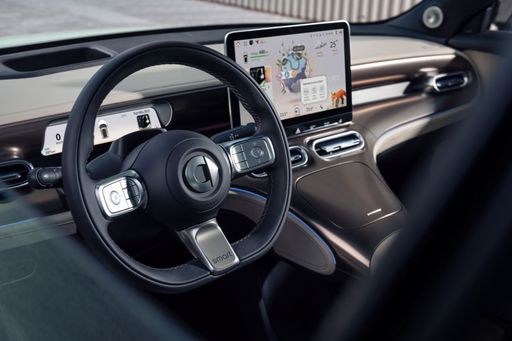
Costs and Consumption |
|
|---|---|
|
Price
34200 - 48800 £
|
Price
31700 - 45000 £
|
|
Consumption L/100km
-
|
Consumption L/100km
-
|
|
Consumption kWh/100km
14.5 - 17.2 kWh
|
Consumption kWh/100km
16.8 - 18.2 kWh
|
|
Electric Range
360 - 602 km
|
Electric Range
310 - 440 km
|
|
Battery Capacity
52 - 79 kWh
|
Battery Capacity
47 - 62 kWh
|
|
co2
0 g/km
|
co2
0 g/km
|
|
Fuel tank capacity
-
|
Fuel tank capacity
-
|
Dimensions and Body |
|
|---|---|
|
Body Type
SUV
|
Body Type
SUV
|
|
Seats
5
|
Seats
5
|
|
Doors
5
|
Doors
5
|
|
Curb weight
1908 - 2179 kg
|
Curb weight
1780 - 1900 kg
|
|
Trunk capacity
445 - 450 L
|
Trunk capacity
313 - 323 L
|
|
Length
4468 mm
|
Length
4270 - 4300 mm
|
|
Width
1871 mm
|
Width
1822 mm
|
|
Height
1630 - 1639 mm
|
Height
1636 mm
|
|
Max trunk capacity
1417 - 1422 L
|
Max trunk capacity
976 - 986 L
|
|
Payload
561 - 585 kg
|
Payload
425 - 470 kg
|
Engine and Performance |
|
|---|---|
|
Engine Type
Electric
|
Engine Type
Electric
|
|
Transmission
Automatic
|
Transmission
Automatic
|
|
Transmission Detail
Reduction Gearbox
|
Transmission Detail
Reduction Gearbox
|
|
Drive Type
Rear-Wheel Drive, All-Wheel Drive
|
Drive Type
Rear-Wheel Drive, All-Wheel Drive
|
|
Power HP
170 - 340 HP
|
Power HP
272 - 428 HP
|
|
Acceleration 0-100km/h
5.3 - 8.7 s
|
Acceleration 0-100km/h
3.9 - 6.7 s
|
|
Max Speed
160 - 180 km/h
|
Max Speed
180 km/h
|
|
Torque
310 - 679 Nm
|
Torque
343 - 584 Nm
|
|
Number of Cylinders
-
|
Number of Cylinders
-
|
|
Power kW
125 - 250 kW
|
Power kW
200 - 315 kW
|
|
Engine capacity
-
|
Engine capacity
-
|
General |
|
|---|---|
|
Model Year
2024 - 2025
|
Model Year
2023 - 2024
|
|
CO2 Efficiency Class
A
|
CO2 Efficiency Class
A
|
|
Brand
Ford
|
Brand
smart
|
What drive types are available for the Ford Explorer EV?
The Ford Explorer EV is available as Rear-Wheel Drive or All-Wheel Drive.
The prices and data displayed are estimates based on German list prices and may vary by country. This information is not legally binding.




